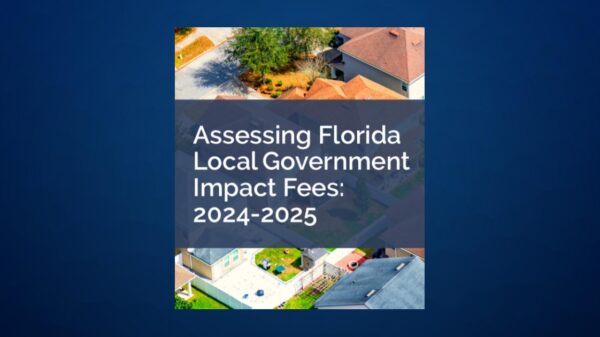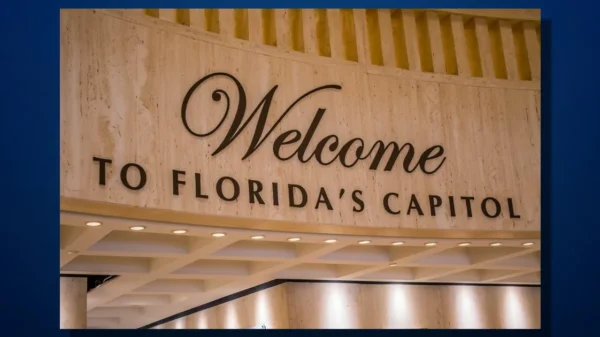This article is the second in a series.
Educational achievement for all students is a pre-eminent challenge facing our country as we move forward in the Twenty-first Century. As I wrote in the first part of this series, we are seriously lacking in our efforts to meet this challenge.
The sheer volume of knowledge is stunning. In 1945 the whole of knowledge would double every 25 years. We now estimate that the volume of knowledge today doubles every 12 hours. Read that again. In large part, this has helped to form my opinion that while content knowledge conveyed by teachers is critical, it is the modalities of teaching, and the conveyance of the importance of learning new things that will become even more critical over time. We should never lose sight that teaching is not within the toolbox of all of us. I have taught at the undergraduate and graduate levels. It is a challenge that took a great deal of effort to be even a little bit good at it. Imagine teaching eighth grade, with all those various energies and competencies, and facing six periods a day with 22 kids in each class. Imagine not only teaching these 132 highly diversified (in every way imaginable) children but also dealing with parents, administrators, policymakers, and at the end of it all providing grading and feedback to those cherished 132 souls. It is a challenge and yet we wonder why so few choose it as a profession.
I wrote a study-piece about five years ago that was intended to awaken policy makers to a coming crisis in education. At that time, I headed an organization of 30 colleges and universities, with 21 of those offering degrees in education. We saw a precipitous drop in the number of students earning degrees in education during the years from 2010 to 2018. If we are not producing new teachers, we cannot replace the sheer numbers who leave the profession each year, a pace that has only accelerated. Why be surprised when recruitment efforts fail, especially when you know a huge number of certified teachers in Florida classrooms already are coming here from other states, having earned their degrees from non-Florida colleges and universities?
Florida has tried different ways to create new teachers. Every community or state college created mechanisms for offering programs at each site they manage with the intention of creating greater outputs and offering shorter pathways to teacher certifications. Go ahead and check out how many still are in place and how successful each has been in meeting the local county demand for teachers. Back when these alternate routes were created, I predicted that these would target a finite group of interested parties and that the economy would change and drive others to pursue optional. More lucrative, and I dare say, less challenging or difficult tasks. We have used all kinds of alternative track methods for converting people with subject matter expertise into teachers, and yet we are still around 9,000 short this fall semester. That number is going to get worse unless it becomes a public policy priority for Florida.
The study I chaired 20 years ago found a multitude of reasons for why teachers left the profession. Those issues have grown in number and as our society becomes more complex, more divisive, and more resistant to change we must find ways to be more creative, more open to new ideas and more focused on doing what is best for our students. We have been creative in developing new modalities, new venues, and new kinds of structures. When once we only saw public schools, private schools and parochial schools, we now have all kinds of mixes and options. As high-speed internet connectivity expands and the ability to reach every household with adequate online capacity grows, our options will also grow. This is a national challenge, but it is a great opportunity for Florida to step up and seek workable solutions. We need the best instruction now if we want to be the best tomorrow. We need it in every school and every classroom in our state.
We also need to find out why we are losing our teacher talent and our teacher pipeline now twenty years after our last study. We know we have a shortfall, in large part due to losing three out of five teachers within five years of them entering a classroom. There are five critical challenges beyond the immediate need of finding better ways to both recruit and retain teachers. This will take a singular concerted effort before we even jump to the other five huge challenges. One thing we know is that creating learning organizations out of public policy making entities, such as legislatures, will also take a huge change in retention of prior actions and efforts. Term limits have exacerbated this problem. Pulling together old actors in the processes who have been there and done that, and combining them with new creative thinkers, might help in these change efforts as we move forward. Here are a few places to start:
Expanding choice and competition are two keys to updating Florida’s education system of schools, colleges and universities. Choice gives students and families needed options to boost their education and capacities to meet the demands of the future. Competition gives students, families and the State help in lowering education costs. Choice and competition, if nothing else, break old habits and boost new, more creative designs. Many state, independent, and private colleges and universities have already begun this work. Many have researched, tested, adjusted and demonstrated choice and competition models. These existing models should be inventoried, assessed and where possible replicated in lower performing areas of the state. Some talk as if choice is something new for Florida.
It is interesting to note that the state provided a grant program for students attending Independent Colleges and Universities of Florida (ICUF) schools, now called EASE but previously called FRAG, which is now in its 44th year of existence. It has helped give students enhanced choice options upon graduating from Florida high schools. Oddly, this past legislature chose to reduce this choice option, even as many of those students were pursuing degrees in badly needed fields in Florida, including teaching. There are many on the national level pushing for public dollars spent in education at all levels to simply follow the students. It is public money taken from the public. Why should it only favor public institutions? Families make choices. Those choosing non-public options continue to support public options through taxes. The concept here is to truly allow and advance choice. One must treat all students, families and institutions meeting public needs the same. Our economy is dependent upon talent. We should do a better job of creating talent.
Career counseling is in need of expansion. Technology is transforming education and the workplace. Technology will likely eliminate a significant number of today’s jobs in upcoming years. Census estimates predict that Florida will welcome more than four million new residents by 2030. These two anticipated changes will trigger massive retraining and educational assignments for our schools. There are on-site and online courses and degree or certificate programs, offering career pathways that current and future students can choose.
In short, we need to make sure that our students are challenged from the first day they enter classrooms, need to assist them in pursuing their education, advise them about career options and the needs of our Florida economy, and give them as many quality options to obtain their goals as we can provide.
This is the second article in a series which is taken in part from a piece this author wrote for the Journal of the James Madison Institute published in Fall 2022.




















